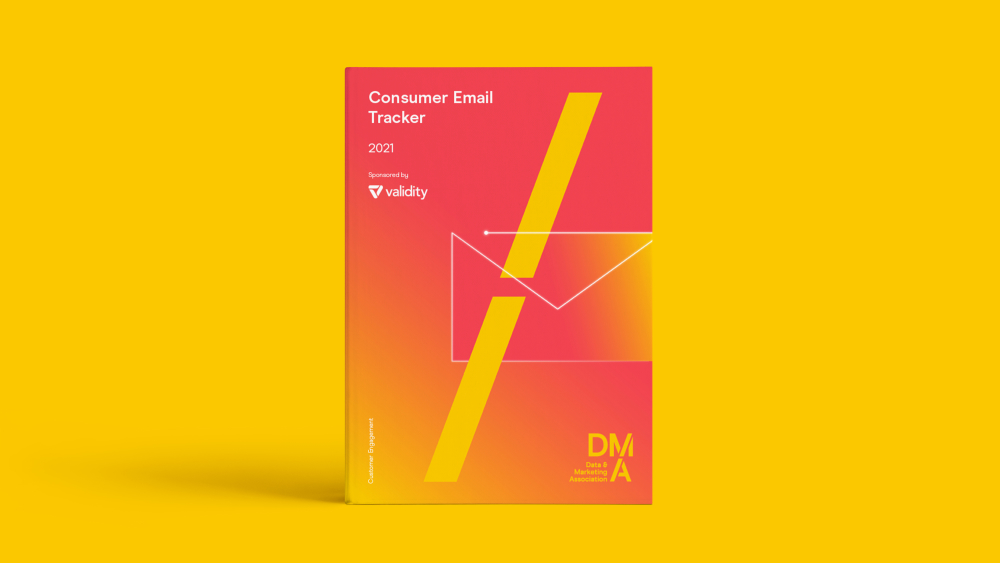Brand recall is more important for email open rates than the subject line’s content – with 68% of consumers saying this is key to whether they open an email, compared to 59%, according to new research.
The ‘Consumer Email Tracker 2021’ report, released today, reveals that brand recall is more important for email open rates than the subject line’s content – with 68% of consumers saying this is key to whether they open an email, compared to 59%. Both factors have become more important in the eyes of consumers since 2019, when they were stated by 55% and 48% respectively.
The research, conducted by the Data and Marketing Association (DMA) and supported by Validity, delves into consumers’ perceptions, preferences and dislikes when it comes to email. The survey asked over 2,000 consumers their opinion about the emails they receive from brands and how they choose to interact with them.
The figures show email remains the best channel brands can use across the customer journey – according to over 70% of consumers.
The importance of email relevance has increased in the past year (55%) to become the leading reason consumers like brand emails. This even surpassed discounts and offers (53%), although these remain the main drivers behind people signing up to receive emails from a brand (48%).
“Brand recognition has never been more important, particularly in deciding whether someone opens an email. It’s clear from our findings that email remains at the heart of brands’ ability to communicate with customers, but they also highlight how important it is to make sure that businesses understand their customers’ preferences and have a strong rapport with them,” said Tim Bond, Head of Insight at the DMA.
The evolving role of email
This year’s study also reveals emails’ role as the most popular place to save important information sent by brands, as around half of consumers (48%-56%) currently use their inbox in this way.
While clicking on the link remains the single most likely action from reading an email (19-29%), consumers are almost as likely to engage with the brand indirectly or via another channel (19-26%) as they are to click.
Guy Hanson, Deputy Chair of DMA Email Council & Vice President of Customer Engagement
Validity International, said: “This report provides a great reminder that email marketing is part of a much bigger ecosystem, and the way subscribers engage with their emails reflects this. A clear indication is seen in reasons for unsubscribing, where around a fifth of responders cite negative experiences outside of the email program – a poor in-store experience or negative publicity, for example.”
Given the option to manage the communications they receive from brands, most would like to reduce email frequency (36%), only receive specific messages (32%) and choose to receive more personalised emails (24%) – although a third would simply rather unsubscribe (31%).
The main driver for unsubscribing is receiving too many emails (56%), followed by information no longer being relevant (38%), not remembering having signed-up (34%) and not recognising the brand (34%). A bad customer experience (19%) and negative stories about a brand (11%) can also act as deterrents.
Bond concludes: “The way consumers engage with interesting emails continues to evolve. This is reflected by our findings with the role and impact of email marketing expanding. It is important for businesses to take note as current attribution models may be vastly under-valuing the power of email.”
To read more about the DMA and Validity’s research, including the full ‘Consumer Email Tracker 2021’ report, visit: https://dma.org.uk/research/consumer-email-tracker-2021

